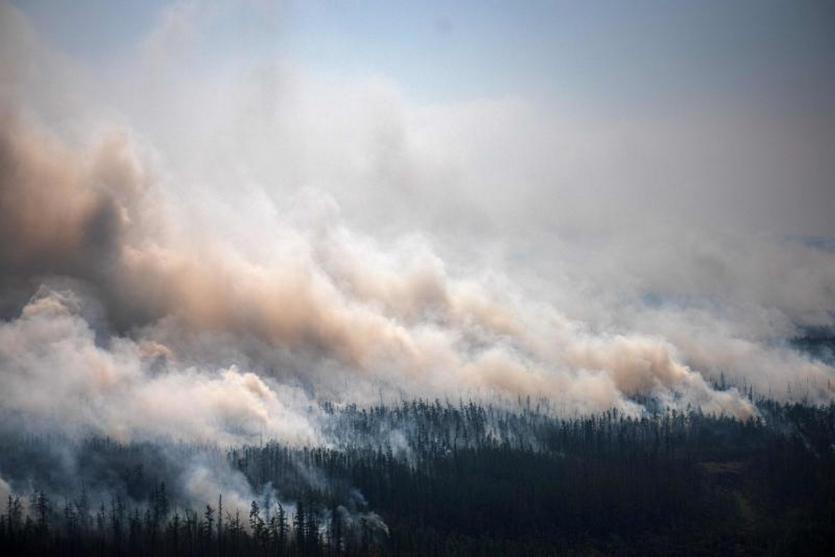Smoke rises from a huge forest fire outside the village of Berdigestyakh, in the republic of Sakha, in Siberia, on July 27. According to many scientists, Russia - especially its Siberian and Arctic regions - is among the countries most exposed to climate change. The country has set numerous records in recent years and in June 2020 registered 38C in the town of Verkhoyansk, the highest temperature recorded above the Arctic circle since measurements began. Photo:AFP
By Patryk Krych | The World Daily | JULY 28th 2021
According to the research team behind the declaration two years ago, which stated that the world was facing a climate emergency –a sentiment shared by 11,000 scientists from over 150 countries– the effects are already being felt as the Earth’s vital signs are visibly worsening.
The world has been in an uproar over the climate situation since the 2015 Paris Climate Accords, which brough many countries together to join in the united goal of saving the world from what would be a guaranteed climate disaster. The situation has improved over the last year, since the election of US President Joe Biden and his re-instatement of United States into the Accords.
However, over the past number of years, a growing amount of disastrous effects have been observed worldwide, from the Australia bushfires to the assessments of declining polar bear populations – which have too been observed, as the species gradually migrate further South due to melting ice. Back in late 2019, the journal BioScience had even published an assessment, co-signed by over 11,000 scientists that declared a global climate emergency.
Global greenhouse emissions had seen a bit of a dip across the Covid-19 pandemic, however, according to a new assessment by the researchers who had announced the global climate emergency two years ago, the Earth’s vitals are by no means improving.
“A major lesson from COVID-19 is that even colossally decreased transportation and consumption are not nearly enough and that, instead, transformational system changes are required, and they must rise above politics,” read the article, published once again in the BioScience journal.
It added: “Given the impacts we are seeing at roughly 1.25 degrees Celsius (°C) warming, combined with the many reinforcing feedback loops and potential tipping points, massive-scale climate action is urgently needed.”
Events such as deadly floods, terrible wildfires and record-shattering heatwaves were cited in the report, which was led by the ecology professor William Ripple and forest ecosystems researcher Christopher Wolf of Oregon State University.
“Most of the factors that we track, we call them ‘planetary vital signs’, have gotten worse,” Ripple told the Independent. “It’s surprising to me that climate change impacts are happening so fast around the world. Just in the last two weeks, every day we’ve seen another climate-related disaster – either with fires or floods or drought or heat.”
Ripple stressed that things were only getting worse from what could be assessed by these vital signs, and the distinct “lack of progress” they had observed since the last report in November of 2019 was both “frustrating and scary,” as the world’s conditions continue to spiral out of control.






